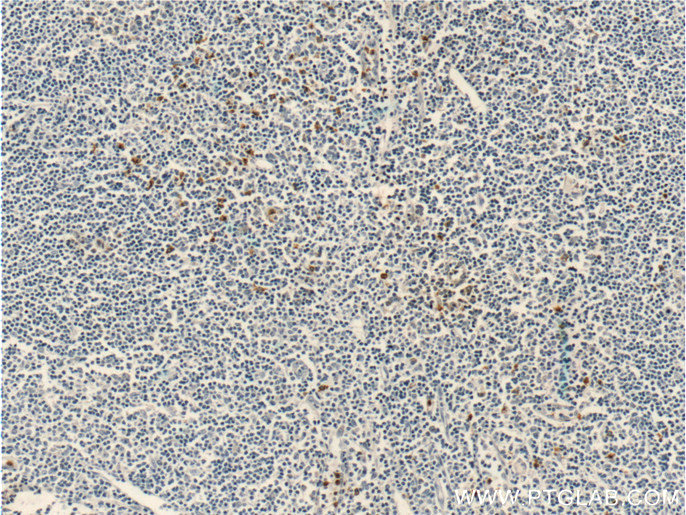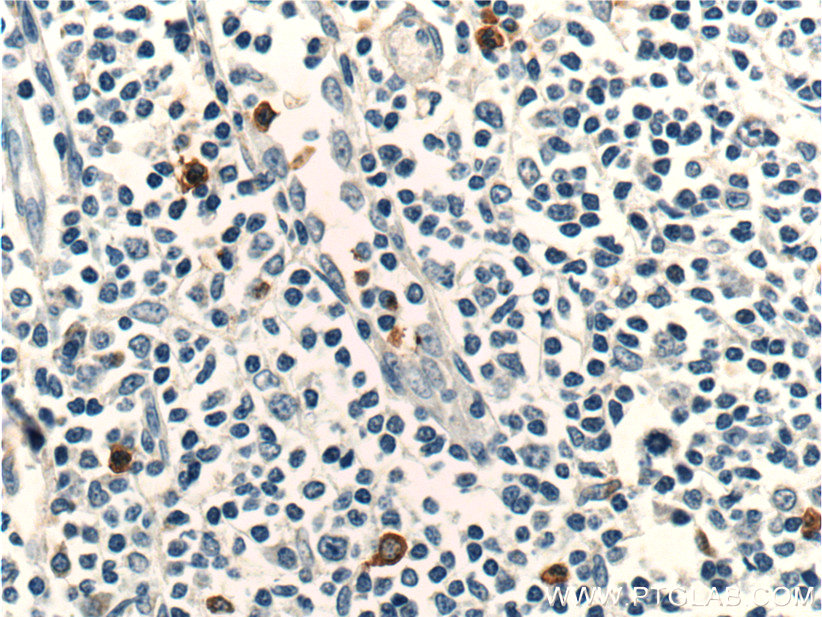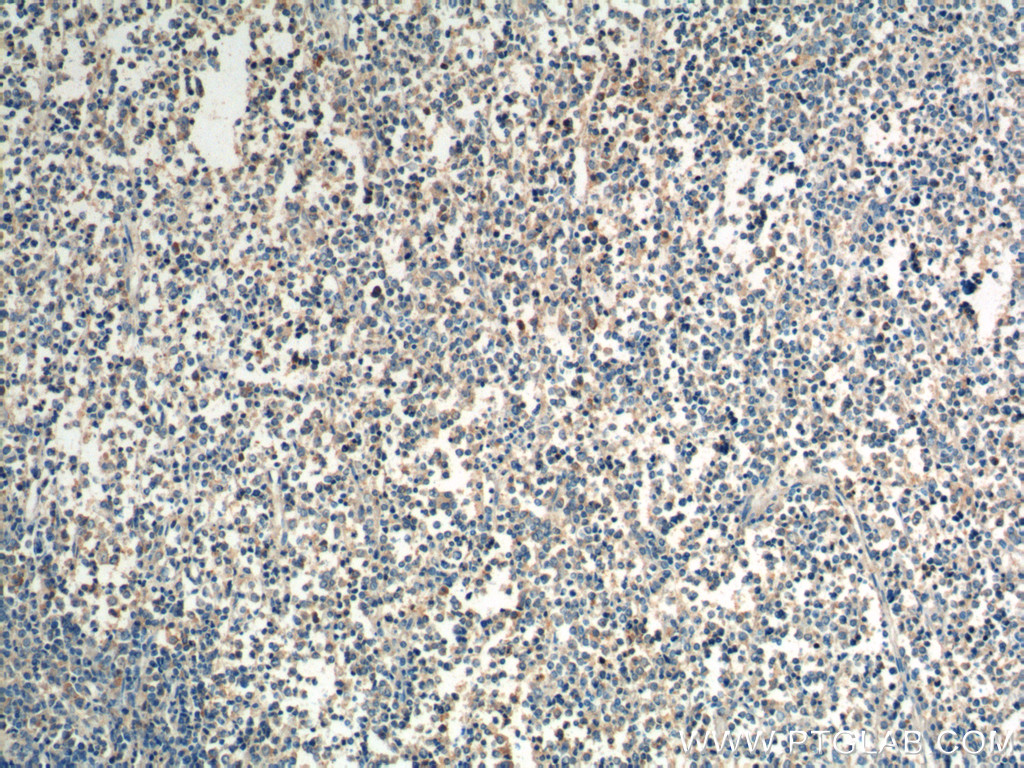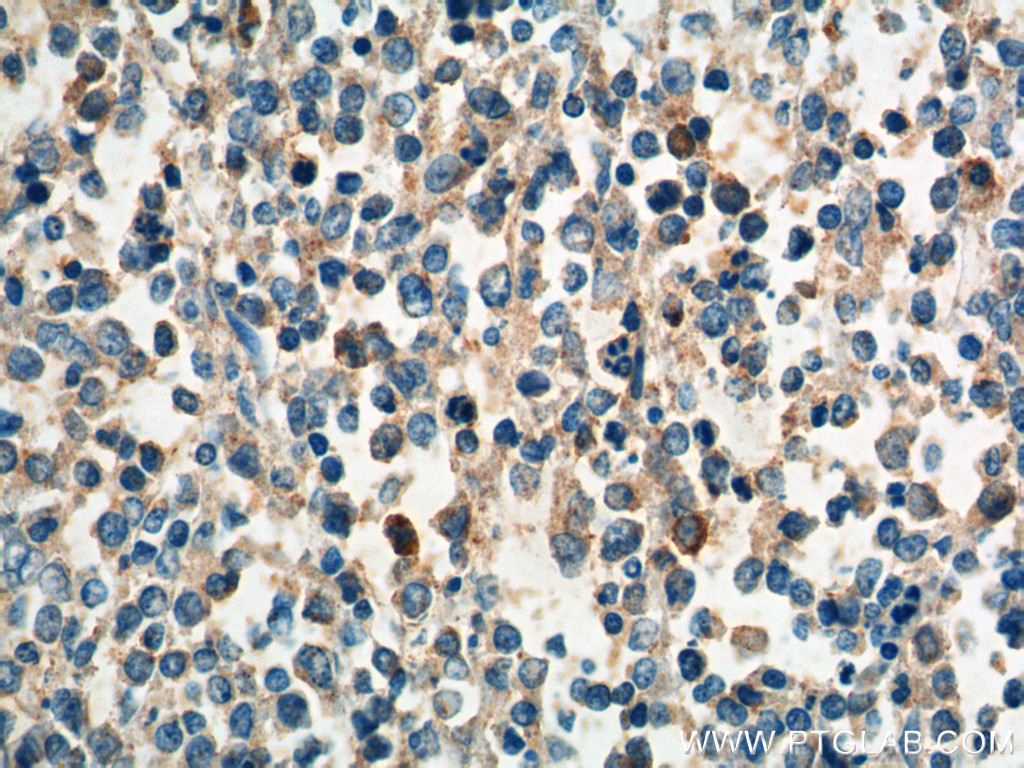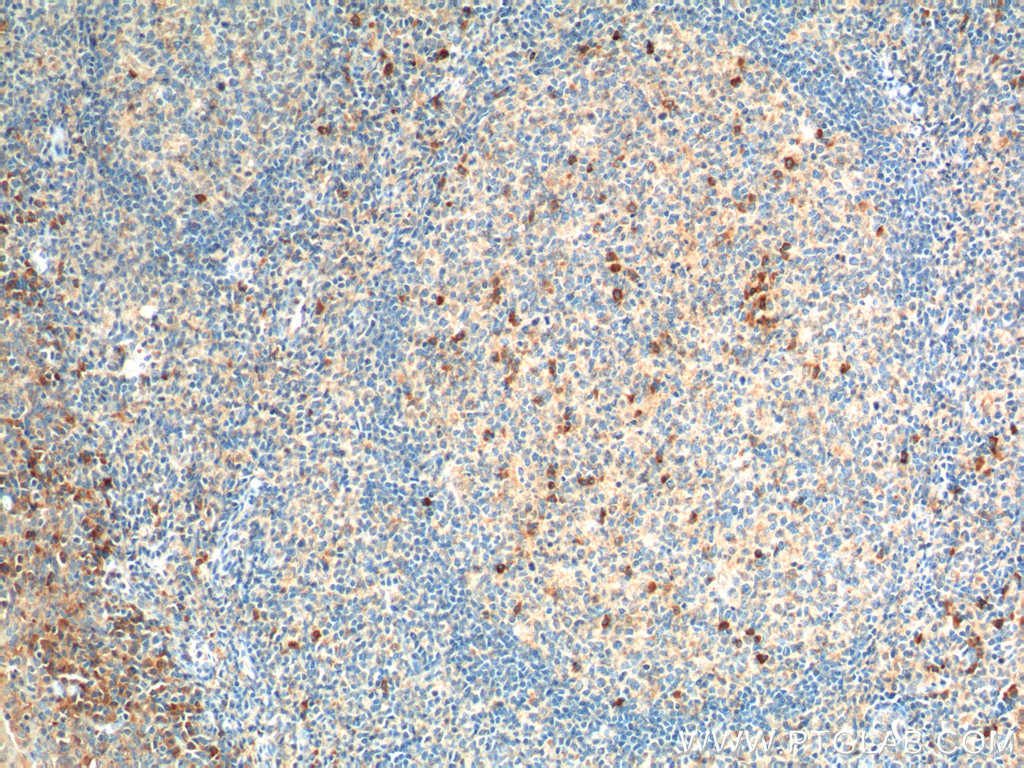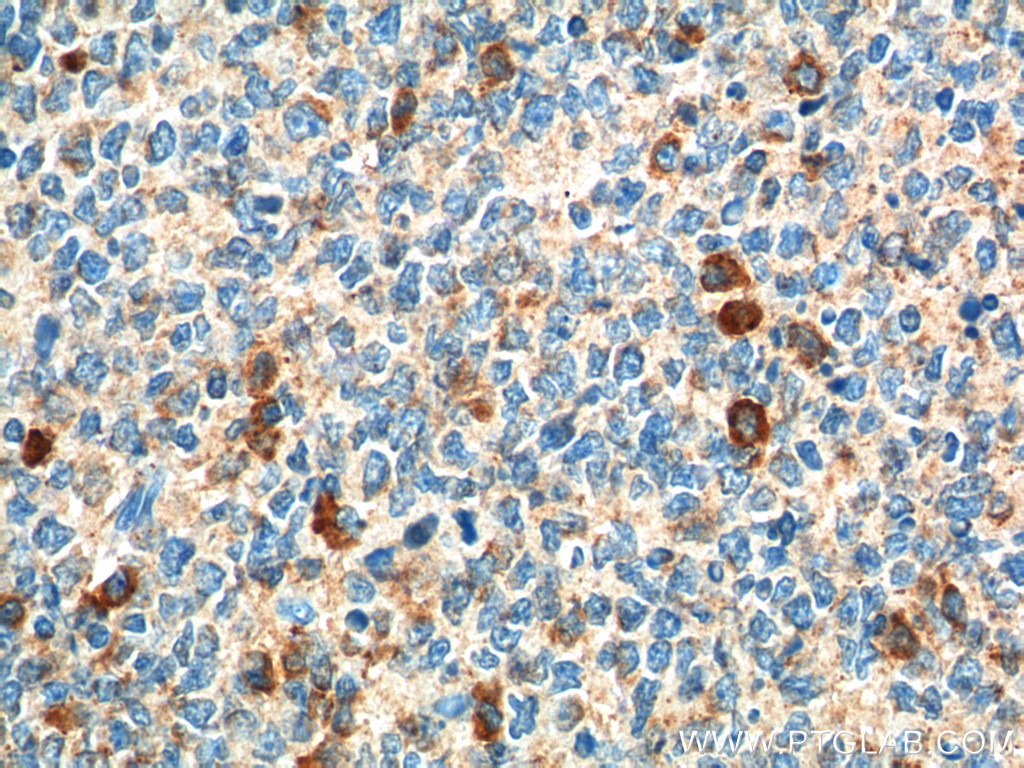验证数据展示
经过测试的应用
| Positive IHC detected in | human tonsillitis tissue, human lymphoma tissue Note: suggested antigen retrieval with TE buffer pH 9.0; (*) Alternatively, antigen retrieval may be performed with citrate buffer pH 6.0 |
推荐稀释比
| 应用 | 推荐稀释比 |
|---|---|
| Immunohistochemistry (IHC) | IHC : 1:100-1:400 |
| It is recommended that this reagent should be titrated in each testing system to obtain optimal results. | |
| Sample-dependent, Check data in validation data gallery. | |
发表文章中的应用
| IHC | See 3 publications below |
| IF | See 1 publications below |
产品信息
22351-1-AP targets CCR3 in IHC, IF, ELISA applications and shows reactivity with human samples.
| 经测试应用 | IHC, ELISA Application Description |
| 文献引用应用 | IHC, IF |
| 经测试反应性 | human |
| 文献引用反应性 | human, mouse |
| 免疫原 |
CatNo: Ag17926 Product name: Recombinant human CCR3 protein Source: e coli.-derived, PGEX-4T Tag: GST Domain: 310-354 aa of BC110297 Sequence: KYLRHFFHRHLLMHLGRYIPFLPSEKLERTSSVSPSTAEPELSIV 种属同源性预测 |
| 宿主/亚型 | Rabbit / IgG |
| 抗体类别 | Polyclonal |
| 产品类型 | Antibody |
| 全称 | chemokine (C-C motif) receptor 3 |
| 别名 | C C chemokine receptor type 3, C C CKR 3, CC CKR 3, CCR 3, CCR3, CD193, CKR3, CMKBR3, Eosinophil eotaxin receptor |
| 计算分子量 | 355 aa, 41 kDa |
| GenBank蛋白编号 | BC110297 |
| 基因名称 | CCR3 |
| Gene ID (NCBI) | 1232 |
| RRID | AB_2879085 |
| 偶联类型 | Unconjugated |
| 形式 | Liquid |
| 纯化方式 | Antigen Affinity purified |
| UNIPROT ID | P51677 |
| 储存缓冲液 | PBS with 0.02% sodium azide and 50% glycerol, pH 7.3. |
| 储存条件 | Store at -20°C. Stable for one year after shipment. Aliquoting is unnecessary for -20oC storage. |
实验方案
| Product Specific Protocols | |
|---|---|
| IHC protocol for CCR3 antibody 22351-1-AP | Download protocol |
| Standard Protocols | |
|---|---|
| Click here to view our Standard Protocols |
发表文章
| Species | Application | Title |
|---|---|---|
Int Immunopharmacol Emu oil alleviates atopic dermatitis-like responses by inhibiting Cdc42 signaling of keratinocyte | ||
Theranostics CD34+ PI16+ fibroblast progenitors aggravate neointimal lesions of allograft arteries via CCL11/CCR3-PI3K/AKT pathway | ||
Sci Rep Immuno-transcriptomic analysis based on machine learning identifies immunity signature genes of chronic rhinosinusitis with nasal polyps | ||
Oncol Rep SYNPO2 promotes the development of BLCA by upregulating the infiltration of resting mast cells and increasing the resistance to immunotherapy |

